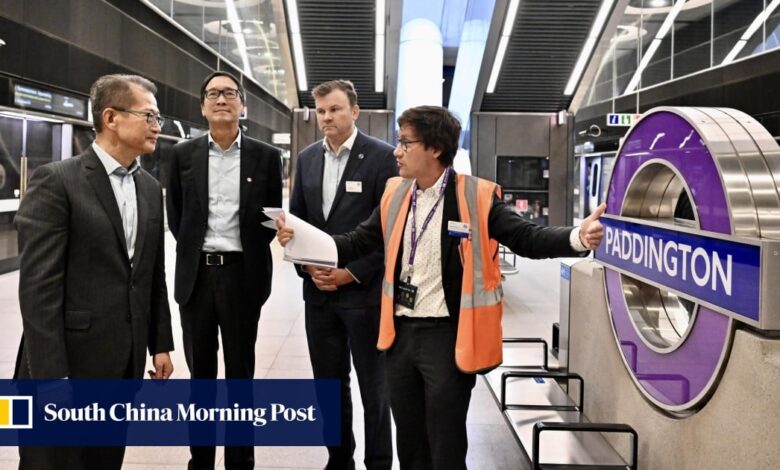British, French businesses eyeing Hong Kong as launch pad for expansion into mainland China, rest of Asia, city’s Paul Chan says

[ad_1]
British and French companies have spoken with Hong Kong officials about using the city as a base for expanding their operations into mainland China and the wider continent, a minister has revealed.
The minister made the remarks as he wrapped up his visit to London, the second stop in his 10-day journey across Europe at the head of a 130-strong trade delegation.
UK drug giant AstraZeneca to set up research base in Hong Kong: Paul Chan
UK drug giant AstraZeneca to set up research base in Hong Kong: Paul Chan
“During our exchange with enterprises, we learned that they were very interested in expanding their businesses in Hong Kong,” Chan wrote.
Chan was referring to a new government office launched in December that focuses on attracting enterprises and investors to Hong Kong, with the body acting as a one-stop shop for foreign businesses.
The office had spoken with more than 200 companies based on the mainland, Southeast Asia, Europe and North America. The businesses spanned sectors such as life and health technology, artificial intelligence and data science, as well as advanced manufacturing and new energy technology.
The Post has reached out to the office for further details.

“Hong Kong’s role as a gateway and springboard is highly evident. I encourage them to accelerate and expand their development in Hong Kong,” he said.
The minister said some 650 British and 360 French companies were based in Hong Kong.
Official figures showed that both countries’ accumulated direct investments in Hong Kong had exceeded US$200 billion as of 2021.
On Saturday, the minister said leading global pharmaceutical firm AstraZeneca was expected to establish a research and development centre in Hong Kong.
Chan visited Paris during the first three days of the trip last week, before heading to London on Wednesday. He met local government officials and spoke with business leaders from sectors such as life and health technology, and cultural and creative.
Hong Kong’s Paul Chan touts close ties with France, cheers on wine imports
Hong Kong’s Paul Chan touts close ties with France, cheers on wine imports
The Hong Kong government on Sunday said the minister had visited Paddington train station during his trip to London to observe the Elizabeth line’s operation.
The route is run by MTR Elizabeth line, a wholly-owned subsidiary of the MTR Corporation.
Hong Kong’s rich experience in designing, building and operating infrastructure projects was an indicator of the city’s “soft power”, the minister said.
The Hong Kong government launched the 10-day tour amid heightened political tensions between Britain and the city.
The UK earlier described the city’s legal system as being at a critical juncture with the promulgation of the national security law, arguing that civil rights were “under significant pressure”.
[ad_2]
Source link





